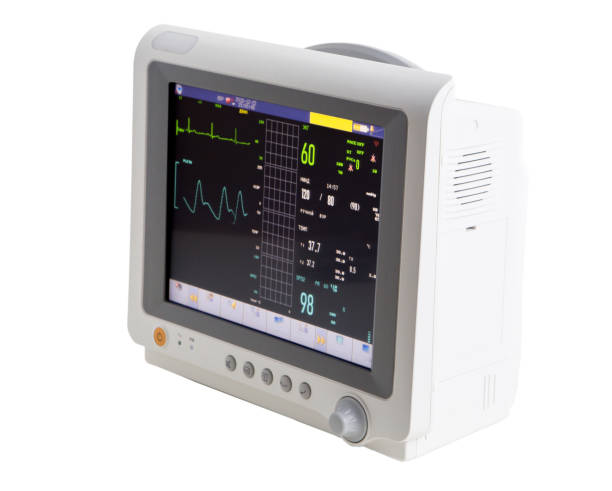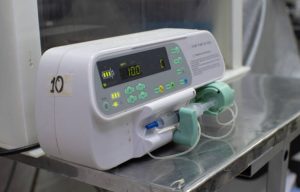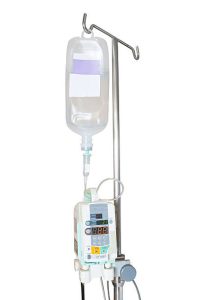
Special medical equipment - Patient electrocardiographic monitoring - medical device isolated on white
Portable Ventilator Overview
A Icu Ventilator Machine Price in India & USA – Top Brands and Features ventilator is a medical device designed to assist or replace spontaneous breathing in patients with respiratory issues. They are often used in emergency care, home healthcare, or during patient transport in ambulances.
Popular Portable Ventilator Brands & Price (US & India)
- Philips Trilogy Evo
- US Price: Around $12,000 – $15,000
- India Price: ₹10-12 lakh
- Value for Money: Known for reliability and versatility in various care settings, the Philips Trilogy Evo is considered a good investment for its long-term durability and ease of use.
- ResMed Astral 150
- US Price: Around $15,000 – $18,000
- India Price: ₹12-15 lakh
- Value for Money: Offers advanced features like invasive and non-invasive ventilation modes, making it suitable for home and hospital use. Its higher price reflects premium features like extended battery life and portability.
- BPL eVent
- India Price: ₹3-5 lakh
- Value for Money: BPL is an affordable option in the Indian market with basic functionality, making it a cost-effective solution for home or small medical facilities.
- Ventec Life Systems VOCSN
- US Price: Around $18,000 – $20,000
- Value for Money: Combines five devices in one (ventilator, oxygen concentrator, cough assist, suction, and nebulizer), making it highly versatile and efficient for long-term care.
How to Use a Portable Ventilator
- Setup: Connect the device to power (or ensure battery is charged). Attach the required tubing and mask or tracheostomy tube to the patient.
- Settings: Adjust ventilator settings such as tidal volume, respiratory rate, pressure support, and oxygen concentration according to medical guidelines.
- Monitoring: Continuously monitor the patient’s vitals and respiratory parameters displayed on the ventilator.
- Maintenance: Clean and replace filters regularly, check battery life, and update software as recommended by the manufacturer.
Features & Specifications
- Portability: Compact and lightweight design (weighs 3-10 kg).
- Battery Life: Typically ranges from 4-12 hours with rechargeable batteries.
- Ventilation Modes: Invasive, non-invasive, CPAP (Continuous Positive Airway Pressure), BiPAP (Bilevel Positive Airway Pressure).
- Oxygen Compatibility: Can deliver oxygen from an external source.
- Display: Touchscreen interface for setting parameters and monitoring.
- Connectivity: Some models have Bluetooth and Wi-Fi for remote monitoring.
Performance
- Accuracy: High precision in delivering controlled airflow and oxygen levels.
- Battery Backup: Ideal for emergency scenarios where portability is crucial.
- Durability: Most devices are built to withstand harsh conditions during transport.
- Versatility: Suits patients across different age groups and medical conditions.
Safety
- Alarm Systems: Alerts for disconnection, power failure, low battery, and changes in patient condition.
- Built-in Fail-Safes: Auto-adjusting pressure and volume to prevent lung injury.
- Backup Power: Integrated battery ensures uninterrupted function during power cuts.
Pros and Cons
Pros:
- Portability: Lightweight and easy to transport.
- Versatile Use: Can be used for both invasive and non-invasive ventilation.
- Battery Life: Allows usage in transport and outdoor settings.
- Remote Monitoring: Advanced models provide remote access to patient data.
Cons:
- Cost: High-end models can be expensive, especially for home use.
- Maintenance: Requires regular upkeep, including filter changes and software updates.
- Noise: Some models can be noisy, especially when used in home settings.
Comparison with Competitors
- Philips Trilogy Evo vs ResMed Astral 150: Both offer great battery life, but the ResMed Astral has a wider range of advanced features, making it slightly pricier.
- Ventec VOCSN vs Philips Trilogy Evo: The VOCSN integrates five devices, making it more versatile, but also more expensive. The Trilogy Evo is easier to maintain and more focused on core ventilation features.
- BPL eVent vs High-End Brands: BPL eVent is more affordable but lacks some of the advanced features like remote monitoring and extended battery life found in premium models.
User Feedback/Testimonials
- Philips Trilogy Evo: “Excellent for home use and has a durable battery. It’s easy to use even for non-professionals after some training.”
- ResMed Astral 150: “The battery lasts long enough for outdoor trips, and it’s very compact. Setup can be a bit complicated initially.”
- Ventec VOCSN: “Having five functions in one machine saves space and makes care much easier, though it’s a bit on the heavier side.”
- BPL eVent: “Affordable option but lacks some of the extra features that high-end models have. Good enough for basic ventilation needs.”
Disclaimer
Portable ventilators are medical devices that should only be used under the guidance of a qualified healthcare professional. Consult a respiratory therapist or physician before purchasing or using one. Always refer to the manufacturer’s instructions and safety guidelines.
This overview covers the essential aspects of portable ventilators, from pricing and features to user feedback and safety considerations.








